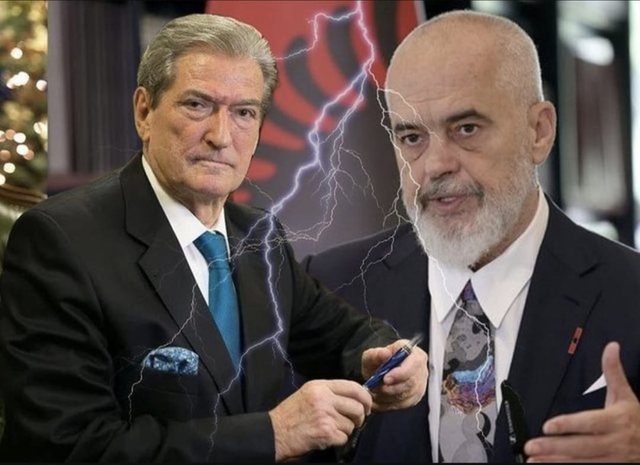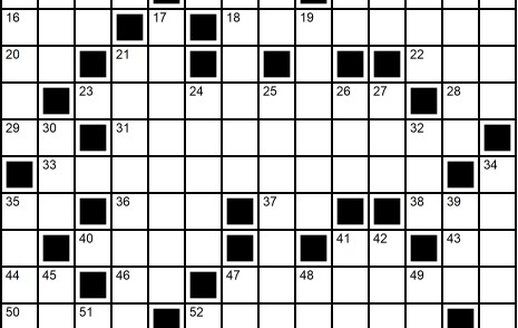
"Is Rama bad or Berisha bad"/ Where Bushati and Kajsiu are wrong


Post-election analyses are valuable not only for understanding the factors that enabled the May 11 election result, but more importantly, what are the socio-economic and political structures that dictate electoral behavior and that of political parties in a context like ours.
I have also seen the debate between political scientist Kajsiu and scrupulous journalist Bushati as such, who with their presentations attempt to identify the variables that influenced the opposition's deep defeat and the unprecedented consolidation of the government, with four consecutive mandates.
If you focus on each person's positions, you will be convinced that they are in antagonistic positions where one thesis excludes the other, since Kajsi adheres to the thesis of sluggishness, fragmentation, Berishism, the consumption of the main figures of the DP and the DP's lackluster strategy in the defeat of the latter, while Bushati has remained for years with the thesis of Rama's authoritarian regime that the longer it stays in power, the more it puts the state machine at the service of extending power. So, if we were to use a simplistic logic of explanation, you understand that for Kajsi it is the DP that causes this electoral situation for itself and for the opponent, while for Bushati it is Rama's super power that reproduces itself and neutralizes the opponent's power. If you look at them separately, each is right in itself since both think that there is a cause that produces a consequence, despite the fact that both identify the cause differently.
However, in methodology, it is a well-known hypothesis that in some complex contexts such as ours, the phenomenon can be explained with inverted hypotheses where the cause is a consequence and the latter becomes a cause, so both simultaneously affect each other. Expressed differently, the PD factor affects the victory of the SP but at the same time, the latter's authoritarianism deactivates the power of the PD.
Political science theorists confirm the thesis that in autocratic systems when institutions are weak and corrupt, executive power does not consume but rather strengthens it more and more. Even more so - they say - when the opposition is powerless, with exhausted leadership and opposition fragmentation, as is the case with the Democratic Party.
Autokracia në vende si Shqipëria, ku opozita është e dobët, ka disa karakteristika dhe pasoja të veçanta që e bëjnë sistemin më të qëndrueshëm për pushtetin aktual, por më të brishtë për demokracinë dhe zhvillimin institucional. Votat rriten në përqindje nga një palë zgjedhje në tjetrën në favor të qeverisë e jo opozitës, pasi mekanizmat e presionit, manipulimit dhe shitblerjes shtohen nga një palë zgjedhje në tjetrën. Manipulimi zgjedhor shikohet si normalitet, jo fatalitet. Aq më shumë legjitime bëhet kjo kur opozita, nuk arrin të frymëzoj apo të ofroj alternativë qeverisëse më të mirë se qeveria.Teza që mjafton të rrimë si forcë e parë në opozitë dhe qeveria rrezohet vet, në vende autokratike ku bën pjesë edhe Shqipëria nuk vlen. Madje opozita me kalimin e viteve bëhet zgjatim i qeverisë jo oponencë. Kjo pasi humbet besimin te vetja, nuk gjen forca të rigjenerohet, madje fillon edhe korruptohet nga padurimi për të ardhur në pushtet.
Në sytë e publikut opozita konsumohet, si qeveria duke qëndruar në opozitë. Në këto kushte votuesi i paqëndrueshëm bojkoton ose voton për partitë e vogla, ndërsa ai pragmatist zgjedh rrezikun më të vogël që në këtë rast është qeveria jo opozita me paqartësitë e saj në organizim, lidership, fragmentarizim dhe shterpësi tezash qeverisëse. Siguria e bilancit familjar të tij ose i saj është më i rëndësishëm se rreziku i demokracisë një koncept abstrat për të.
Pushteti jo vetëm që nuk dobësohet duke qëndruar në pushtet, por forcohet akoma më shumë duke kufizuar pushtetet e tjera. Sistemi i partitokracisë dominon të gjithë jetën sociale, ekonomike dhe kulturore sa më shumë zgjatet në pushtet.
Njerëzit e shikojmë partitokracinë si ushqim për të mbajtur status quo, biznesin si mundësi për të mbijetuar në treg, shoqëria civile si oksigjen për të ruajtur financat aktuale dhe media si siguri për vazhdimësi. Pra mekanizmat e presionit jo vetëm zbehen por bëhen zgjatim të pushtetit kur shikojnë që kundërshtari politik nuk bind për një vizion tjetër qeverisës.
Zgjidhjet apo mbështjet që priten nga jashtë në sytë e shtresës së mesme kur sistemi global është me disa vatra lufte, kur parametrat e demokracisë janë dobësuar edhe në vendet e BE, ku ekstremi i djathtë sa vjen dhe dominon spektrin politik dhe polarizimi shoqëror rritet, ideja se vjen ndonjë zgjidhje apo mbështetje nga jashtë bëhet gati naive ta besosh. Por edhe ideja që vetëm të rigjenerohet opozita dhe zgjidhja vjen vet kur përball ka makinerinë shtetërore, edhe kjo tingëllon e pamjaftueshme. Ashtu si dhe të presësh ndonjë mrekulli ku makineria shtetërore të vetë-asgjësohet duke qëndruar në pushtet, tingëllon gati e pamundur të ndodh.
In these circumstances, unfortunately, a multitude of factors are required that could change the situation, such as raising people's awareness that long-term governments are a problem in countries with consolidated democracies, not in countries like ours with hybrid regimes, an opposition reorganization with a new profile and identity, increased EU pressure, and monitoring mechanisms like SPAK against corruption that could hope for some electoral surprises in 2027.
Happening now...

83 mandates are not immunity for Rama's friends
ideas
top
Alfa recipes
TRENDING 
services
- POLICE129
- STREET POLICE126
- AMBULANCE112
- FIREFIGHTER128



























